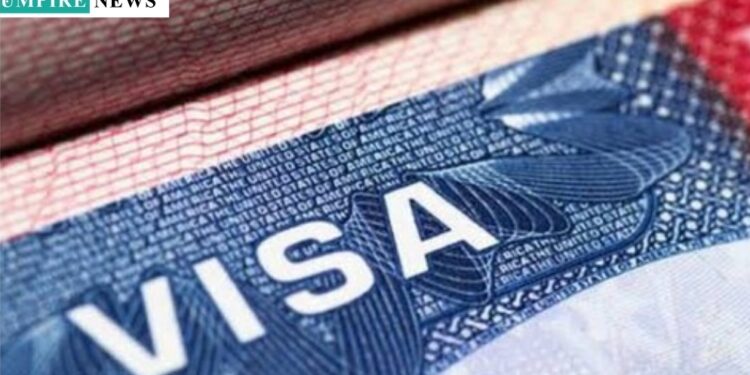The United States government(US) has announced the termination of the legal status of approximately 532,000 immigrants from Cuba, Haiti, Nicaragua, and Venezuela.
The decision, made by the Department of Homeland Security, gives the affected individuals just 30 days to leave the
country or secure alternative immigration status.
The immigrants, who were granted temporary protection under the Processes for Cubans, Haitians, Nicaraguans, and
Venezuelans (CHNV) program, will lose their legal protection on April 24. The program, launched in October 2022,
allowed entry to the United States for two years for up to 30,000 migrants per month from the four countries.
President Donald Trump has made immigration reform a central plank of his administration’s policy agenda. The
decision to end the temporary protection program is consistent with Trump’s pledge to carry out the largest
deportation campaign in US history.
The Department of Homeland Security emphasized that the CHNV program was always intended to be temporary.
“Parole is inherently temporary, and parole alone is not an underlying basis for obtaining any immigration status, nor
does it constitute an admission to the United States,” the department stated.
You may also like: Trump Denies Signing Proclamation for Deportation of Venezuelan Gang Members
The decision has sparked concerns among immigration advocates, who warn that the affected individuals will face
significant hardship and danger if forced to return to their home countries. A nonprofit organization that supports
people seeking refuge in the United States, urged those affected by the move to seek advice from an immigration lawyer immediately.
The Trump administration’s immigration policies have been the subject of intense controversy and debate. Critics
argue that the policies are overly restrictive and inhumane, while supporters contend that they are necessary to
maintain national security and protect American jobs.
The decision to end the CHNV program is likely to have significant implications for the affected individuals and their
families. Many of those affected have established lives in the United States, with jobs, homes, and families.
Immigration advocates are urging the US government to reconsider its decision and provide a more humane and
sustainable solution for the affected individuals. The issue is likely to remain a major point of contention in the coming weeks and months.





































